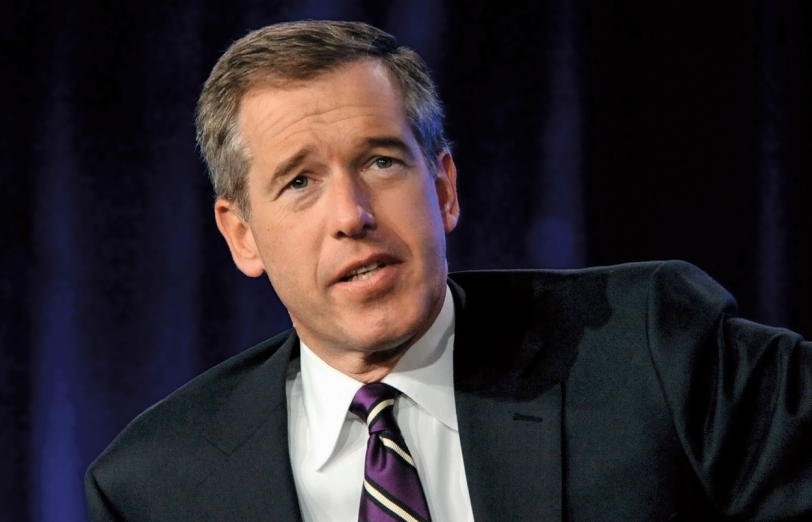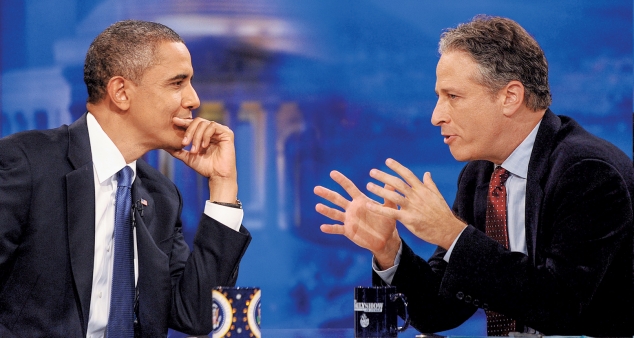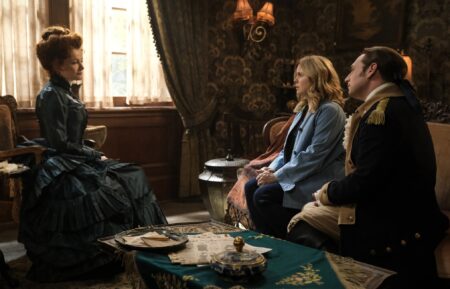Brian Williams, Jon Stewart and the Four Questions TV News Needs to Answer

TV news personnel have been making their own headlines as of late: In October, NBC medical correspondent Dr. Nancy Snyderman broke her quarantine after being exposed to Ebola; in late November, CNN’s gaffe-prone Don Lemon made yet another outrageous comment; in February, Fox News’s Bill O’Reilly was accused of lying about being in harm’s way while covering the Falklands War for CBS in 1982. But it was the February 10 exit announcements concerning two popular and trusted anchors–NBC Nightly News‘s Brian Williams and The Daily Show‘s Jon Stewart–that left viewers, not to mention the media, agog. NBC suspended Williams for six months after he admitted to exaggerating on air about his helicopter coming under fire while reporting from Iraq 12 years ago. Stewart, an important news source for many Millennials, announced he’d be leaving his satirical program later this year.
Here’s how these changes could have serious repercussions for TV news.
Will the marquee anchor become a relic?
Williams is the last of the superstar anchors, making a reported $10 million a year and appearing as a frequent guest on late-night talk shows. Lester Holt, who typically filled in for Williams when he was on vacation, has been occupying the anchor chair on Nightly News and is barely holding on to its lead over ABC’s World News Tonight With David Muir. Holt’s first five days averaged 9.4 million viewers, down from Williams’s 10.2 million the week before, while Muir drew 9 million. ABC has been grooming Muir for a while, says Paul Friedman, a former executive at all three broadcast news divisions. “He’s not just a pretty face–he’s quite skilled,” Friedman says. “He has the makings of a marquee anchor.”
CBS Evening News, which replaced anchor Katie Couric with veteran correspondent Scott Pelley, doesn’t depend on personality, says David Rhodes, the network’s news president. CBS’s focus, he says, is on “the values that the audience expects from a group of journalists that goes back to our early days. 60 Minutes, for example, has always been an ensemble. That’s not pejorative about what anybody else is doing, but that’s our value.”
Can Williams make a credible return after his suspension–and will NBC let him? A CNN poll from mid-February found that 52 percent of respondents want him back on air, but University of Maryland broadcast journalism professor Mark Feldstein, a former investigative correspondent at CNN and ABC, thinks it’s unlikely that Williams will anchor again. He could, however, see Williams hosting a syndicated talk show. “There are enough people who want a second act for a beloved celebrity.”
Could the nightly network news shows soon be obsolete?
Addressing the Williams scandal on The Daily Show, Stewart joked that no one under 70 watches the evening news anyway. (In fact, up to 25 percent of current viewers are 25-54.) “I think the network newscasts are going to limp along for some time, despite their shrinking and aging audience and their credibility problems,” Feldstein says. “TV news is neither dying nor dead. It’s morphing. The shows have incorporated citizen journalism, people with cell phones capturing police brutality, or demonstrations in Iran. That’s the future. And so is pandering more. The visuals drive the story, for better or worse.”
CBS, for one, continues to try to appeal to a wide range of viewers, embracing new technology across all media, Rhodes says. “[All of our platforms] are intended for a mass audience,” he says, “and meant to put on a high-quality news report of interest to the maximum number of people of diverse backgrounds.”

Can newscasts regain the public’s trust?
The challenge for Comedy Central is to find a replacement for Stewart who can just as deftly call out the mainstream media on their errors, both egregious and foolish. “Truthiness has replaced truth,” says Friedman, appropriating the Colbert Report buzzword.
A 2014 Harvard University poll revealed that only 11 percent of Millennials trust the media to do the right thing most of the time. Feldstein isn’t surprised. “I was shocked at how cynical my students were,” he says. “They’ve grown up on Stewart and Colbert, who have convinced them that the news is made up of frauds.”
How is cable news faring?
The average age of the audience for CNN and MSNBC is about 63; Fox News, the ratings leader, averages 69. In part, a lack of revenue has led to programming featuring a lot of talking heads because that’s cheap to produce, says Feldstein, “[but] that leads to a diminishing audience.”
In January, CNN surpassed MSNBC in total primetime viewers; since last year, MSNBC is down 39 percent in the 25-54 demographic that advertisers hope to attract. On February 19, MSNBC canceled two shows, Ronan Farrow Daily (which reached a low of 11,000 viewers in the targeted demo) and The Reid Report, with Joy Reid. The mayor of Paris plans to sue Fox News after one of the network’s commentators claimed that parts of Paris were “no-go zones” for non-Muslims and police.
One bright note amid the cable gloom: In 2014, the prestigious George Polk Award for TV Reporting went to…the Weather Channel–for a piece about the plight of migrants in the deserts of South Texas.





